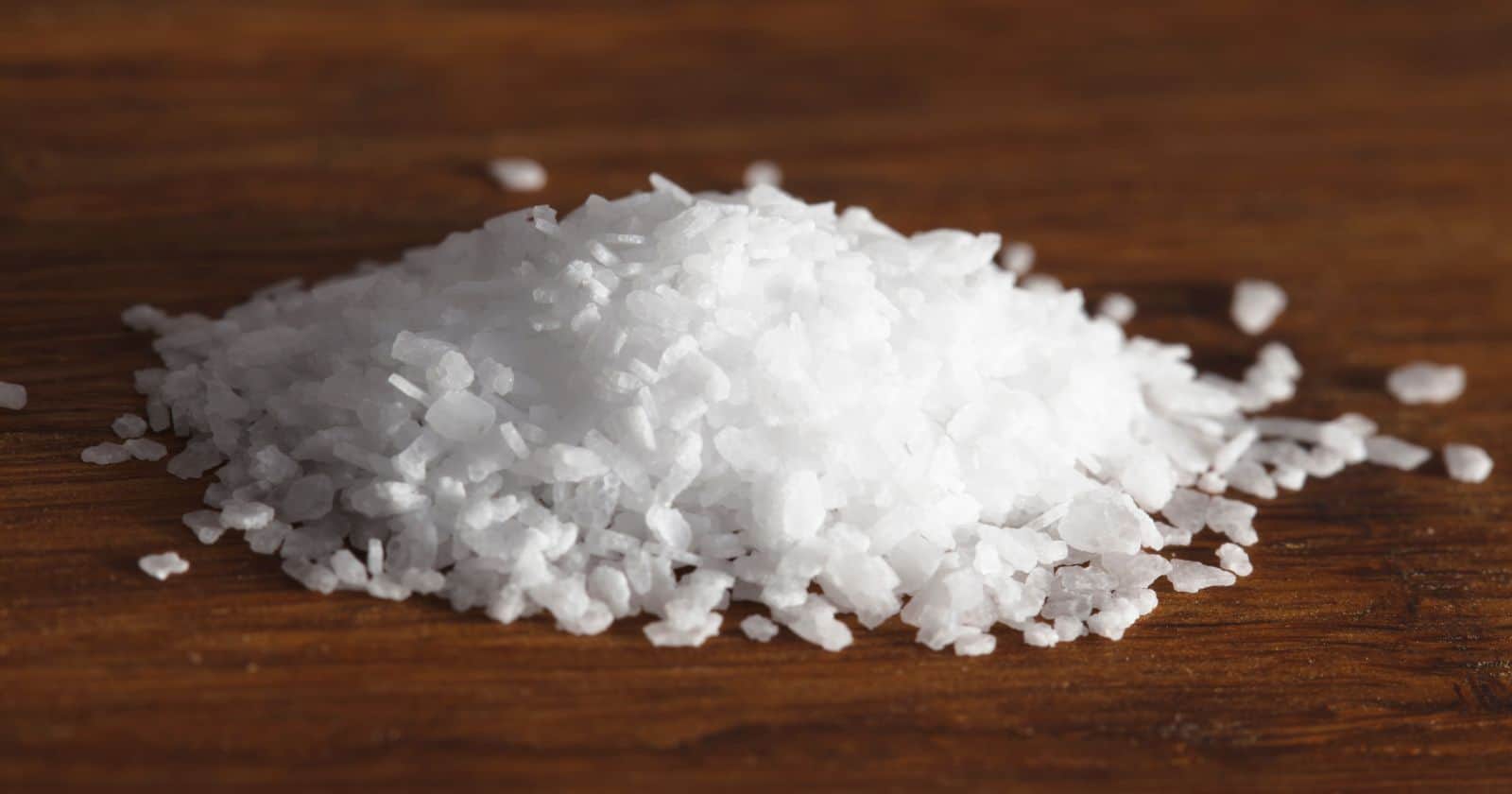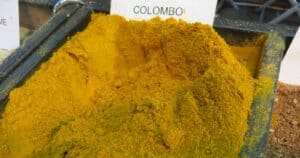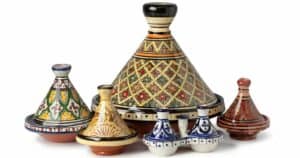As a food lover and chef, finding the suitable salt to use in cooking can make a big difference in the taste and quality of the dishes you create.
If you’re like many home cooks, you may have heard about the benefits of kosher salt but need to figure out how it differs from other types of salt. The good news is that learning about kosher salt is easier than you might think.
Kosher salt is a coarse edible salt commonly used in cooking and food preparation. In this ultimate guide, we’ll explore the differences between this type of salt and other varieties and dive into tips for using it in your favorite recipes.
From understanding the koshering process to discovering unique salt brands, we’ve got you covered in kosher salt.
So let’s get started and elevate your cooking game with this versatile ingredient.
What is Kosher Salt?
Kosher salt is coarse-grained salt often used in cooking and seasoning food. It’s a type of sea salt that’s perfect for the koshering process – this is where salt is used to remove surface blood from meats. Kosher salt has bigger flakes than table salt and doesn’t contain common additives, like iodine, which can affect food taste.
Despite being called “kosher” salt, anyone can use it, no matter their religious affiliation. However, not all kosher salt is certified as kosher.
Kosher salt is known for its unique taste and texture, making it a popular choice for chefs and home cooks. Here are a few more facts about this versatile ingredient:
- Kosher salt is less dense than table salt, meaning less salt is needed to achieve the same level of seasoning.
- This type of salt is also less refined than table salt, resulting in a less bitter taste.
- Kosher salt is excellent for seasoning larger cuts of meat, as the coarse grains make it easier to distribute the salt evenly.
While kosher salt is an excellent ingredient in your kitchen, it’s important to note that it can be more expensive than table salt. However, many people find the unique taste and texture worth the extra cost.
To sum up, kosher salt is a coarse-grained type of sea salt used to season food and for koshering. It has a unique taste and texture and is less dense and refined than table salt. While it can be more expensive, many people find it worth the extra cost.
The Koshering Process Explained
The Koshering process is a crucial step in preparing meat and poultry according to Jewish laws. This process involves removing the blood from the animal’s flesh, which a certified and trained shochet must slaughter.
After slaughter, the meat or poultry is soaked in clean water for half an hour to remove any remaining blood traces.
Following the Torah laws, the consumption of animal blood is forbidden, so koshering helps extract the blood from the meat.
Additionally, any utensils used in slaughtering or preparing the heart must be kosher and dedicated exclusively to meat products.
To perform the Koshering process, there are two accepted methods:
- Salting involves rubbing salt on the meat’s surface to remove the blood. Then the meat is hung in a specific way to extract the remaining blood.
- Roasting: This technique is used on poultry, and the bird is roasted on an open flame to burn off any blood found in the fat and the meat.
Koshering also applies to the animal’s liver, which is considered an essential source of nutrients. The liver is broiled on an open flame to extract the blood, then salted to make it kosher. However, an animal’s liver has a high blood content, and removing it must follow specific protocols.
The Kosher diet is an essential part of the Jewish culture, and the process is critical to ensuring the food is safe to eat and adheres to religious beliefs. The Koshering process ensures that meat and poultry are prepared according to Jewish laws and the blood is removed.
This process also demonstrates respect for the animal’s life, as kosher slaughtering aims to minimize the animal’s distress.
How is Kosher Salt Different from Table Salt?
Kosher salt is different from table salt in many ways. Firstly, its larger flakes don’t compact together as neatly as table salt, resulting in a slight coarseness. Additionally, kosher salt is solely made from sodium chloride, while table salt contains added trace minerals, iodine, and anti-caking agents.
Interestingly, kosher salt is never iodized, unlike table salt, which often is. This might be because iodine leaves a bitter metallic taste in the mouth.
Aside from being sea salt, technically, kosher salt is far less refined than table salt. This means it can contain small amounts of other minerals, such as calcium, magnesium, and potassium, in addition to its sodium chloride content.
In contrast, table salt is highly refined and can be derived from underground salt deposits or seawater sources.
One of the primary reasons chefs favor kosher salt is that it dissolves more slowly than table salt, enabling them to control the amount of salt in their food. Its slightly coarser texture also helps them quickly see how much they are using.
Finally, some people prefer the taste of kosher salt, which is more savory and satisfying than table salt. Ultimately, the choice of salt comes down to personal preference, but it’s worth trying different types to decide which one you prefer.
Kosher Salt vs. Sea Salt: Which is Better for Cooking?
Kosher salt and sea salt are both great options for cooking, but which one is better? The answer is…both! It all depends on personal preference and the specific recipe you are making. Let’s dive deeper into each salt and how it can be used in cooking.
Kosher salt is mined from underground salt deposits and has a larger, more prominent grain than table salt, making it easy to control the amount of salt used in a recipe.
Its clean taste and texture make it a favorite among chefs for seasoning meats and vegetables during cooking. Kosher salt also dissolves quickly, making it an excellent choice for brines and marinades.
On the other hand, sea salt evaporates seawater and contains trace minerals that give it a unique flavor profile. Its coarser grain and softer texture give it a crunchy bite and potent flavor that can add depth to many dishes.
Sea salt is an excellent choice for finishing a plate, like sprinkling over roasted vegetables or on top of a chocolate dessert.
Both kosher and sea salt have unique characteristics that make them ideal for different cooking applications. Experiment with both salts and see which one you prefer for each cooking situation! It’s all about personal preference and the specific recipe you are making.
Benefits of Using Kosher Salt in Cooking
Using kosher salt in cooking has numerous benefits that can enhance the flavor and texture of your favorite dishes. The more comprehensive, coarser grains of kosher salt allows it to gently salt food and elevate the overall taste without overpowering it.
This is because the larger flakes dissolve more slowly, providing a more even distribution of salt throughout the dish. In addition, kosher salt does not contain iodine, which can cause a bitter taste in certain foods, especially when using large amounts of salt.
Another advantage of kosher salt is its free-flowing consistency, which works well in salt shakers and makes it easier to handle and sprinkle onto food. This is particularly useful when seasoning meat or fish, as it can be gently crusted to add flavor and texture.
The antibiotic properties of kosher salt may also benefit oral health, as it can kill infectious organisms in the oral cavity.
Kosher salt is versatile and can be used for various cooking techniques, such as brining, curing, and finishing. When used for brining or curing, the larger kosher salt flakes can better penetrate meats and fish, producing a more flavorful and tender final product.
Additionally, kosher salt can be used as a finishing salt to add a crunchy texture and flavor to dishes like roasted vegetables or freshly baked bread.
Kosher Salt Substitute
Are you out of kosher salt for your recipe? Please don’t worry; there are several substitutes available. Table salt or iodized salt can be used as a substitute, but use slightly less than the amount called for in the recipe.
Other suitable substitutes include sea salt, Himalayan pink salt, pickling salt, and fleur de sel. Try pickling salt if you want a replacement with a similar texture to kosher salt and no additives like iodine.
When using a table or iodized salt as a substitute, remember that these salts are more compact than kosher salt, so you’ll need less of them to achieve the same level of saltiness.
Sea salt can be used as a 1:1 substitute for kosher salt but may have a slightly different flavor profile.
Himalayan pink salt is famous because of its unique flavor and texture. It can also be used as a 1:1 substitute for kosher salt.
Fleur de sel is another excellent substitute, but it can be expensive compared to other salts.
With some creativity and trial and error, you can find the perfect substitute for your kosher salt needs. If you need help determining which substitute to use, use a little less salt than called for in the recipe and adjust to taste.
Remember that different salt substitutes may change the flavor and texture of your dish slightly, so be open to experimentation.





